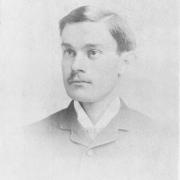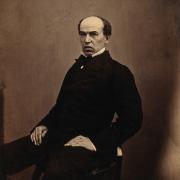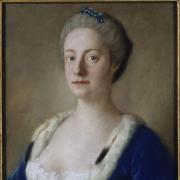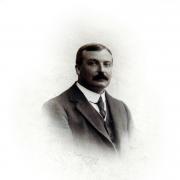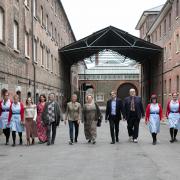As the world prepares to mark 100 years since the Armistice was signed and the guns fell silent on 11 November 1918 after four bloody years of war, Kent Life looks at how our county will commemorate this momentous centenary

Around the world on Remembrance Sunday bells will ring, beacons will be lit and poppy wearers of all ages, colours and creeds will attend services and memorials to remember those who died during the war
‘to end all wars’.
The people of Kent will be among them. As the closest county to the continental battlefields, it felt the war keenly. The sound of artillery fire was often heard, roads and railways constantly shuttled munitions and soldiers while Kent’s hospitals overflowed with the wounded.
Bombardment from the sea and zeppelin raids caused death and destruction in Dover, Ramsgate, Sittingbourne and Gravesend.
Kent celebrated vigorously with everyone else on 11 November 1918 as news of the ceasefire spread. Thousands of church bells rang. Cheering troops marched in Sheerness, aeroplanes circled above Dover, hundreds crammed into Rochester Cathedral, Tonbridge’s children left school early and crowds gathered in Tunbridge Wells and elsewhere.
It was not a happy day for poor Ellen Wells of Sevenoaks, however, who heard that her husband had died in France.
The real end to the war was the signing of the Treaty of Versailles on 28 June 1919. The nation celebrated on 19 July and there were peace processions and activities all over Kent. Tonbridge even received a tank to acknowledge its wartime fundraising efforts.

Now, 100 years later, many Kentish towns and villages have adopted the nationwide Battles Over template in planning events to honour the 800,000 British soldiers who died.
Remembrance Sunday, which fittingly falls on 11 November, starts at 6am with a lone piper (in Dover and Folkestone, for example), followed by processions, wreath laying, bell ringing and church services throughout the morning.
At 6.55pm the Last Post will sound, followed by the lighting of beacons and bells pealing for peace.
Church services and memorials
Church services will be held across Kent. Rochester Cathedral’s starts at 10.50am, followed by an Act of Remembrance and wreath laying at the War Memorial. It’s also displaying several thousand poppies knitted by the local community.
Canterbury Cathedral will participate in the 6am lament piping, Last Post and Beacon of Light ceremonies and wreaths will be laid at the War Memorial, followed by a service.

That evening Germany’s Heinrich-Schütz- Kantorei will join local choirs in a performance of organist-composer Adrian Bawtree’s Remembrance and Reconciliation.
Poppies and tributes
The 2018 poppy appeal has a knitted theme with installations in, for example, Canterbury, Ashford, Tonbridge, Hawkhurst, Maidstone and Medway.
More than 7000 knitted poppies festoon Canterbury’s Marlowe Arcade, created by volunteers as far afield as Uruguay, while the city’s West Gate tower is decorated with poppies cunningly crafted from plastic bottles and draped in Army donated netting.
This year, the Royal British Legion’s campaign slogan is ‘Thank You.’ “We want to inspire people to thank those who died or changed the world,” explains the Legion’s Jane Ayres. “We’re also asking people to research their family or club heritage to trace those who fought. Everyone’s
got a story to tell.”
Tonbridge social historian Pam Mills adds: “It’s all about remembrance, and not just in November.”
Pam’s home town will welcome Herr Halil Öztas, the Mayor of Heusenstamm, to lay a wreath on 11 November. The German town has enjoyed a close twinning relationship with Tonbridge since 1984. Herr Öztas says: “It is a special occasion which brings me to Tonbridge in November.
“It will be 100 years since the end of the First World War and the end of a tragic chapter in our joint history, in which so many of our countrymen had to endure so much suffering.
“It is therefore our supreme task to prevent future wars and also to defuse tensions which may develop, by peaceful means. That is what twinning stands for, as part of a strong Europe, and the foundation for peace and freedom.”
Local companies are also involved in the commemorations. From 1914–1918, two thirds of P&O Ferries’ fleet carried troops, defended trade routes and served as hospital ships and more than 80 ships were sunk.
P&O is organising various activities, including wartime-themed teas for Dover schoolchildren.
Bells and beacons
Bell ringing is central to this year’s celebrations in memory of the UK’s 1400 ringers killed during the war.
On Remembrance Sunday ringing will occur three times, with some Kentish churches (such as Sidcup and Birchington) taking part each time – a huge organisational task, not to mention the demand on stamina and technique by the bellringers.
More than 150, including East Malling, Penshurst, Sevenoaks and Brasted, will participate in the first half-muffled Remembrance Day ring before the morning services. Birchington will perform Armistice while Farnborough will ring full peal non-stop for over two hours.
Next up is ‘Ringing Remembers’ at 12.30 on open (non-muffled) bells to celebrate peace. It’s part of an initiative to attract new ringers to symbolically replace those lost in the war. So far, 1700 have signed up to ring across the world.
The ringing teams from Hartlip and Otham include new recruits, while Sidcup’s St John the Evangelist will ring a ‘date touch’ of 1918 changes in the method Cambridge Surprise Minor.
More than 112 beacons around Kent (including Dover Castle, Folkestone, Walmer, Canterbury, Appledore, Great Church St Mary and others) will be lit at 7pm, followed by a final ring from 50 bell towers, including Appledore’s St Peter and St Paul, Thanet, Farningham, Maidstone’s All Saints, Yalding and Westerham.
“People will notice the bells wherever they are in Kent,” promises the Central Council of Church Ringers’ Caroline Stockmann, who rings at Sevenoaks’ St Nicholas Church.
We will never ever forget, but 1918-2018 will never come again. Make sure to be part of it.
Royal British Legion Industries
Established in 1919 at Aylesford’s Preston Hall, Royal British Legion Industries began life providing accommodation and eventually employment to soldiers returning from the Great War with tuberculosis.
Although no longer owning Preston Hall, RBLI has since grown into an independent national charity which provides employment, training and support to members and veterans of the British Armed Forces, their families and dependents; as well as those with a disability or health condition and those who have been long-term unemployed.
Royal British Legion Industries is a separate charity from Royal British Legion but has a shared ethos of supporting the Armed Forces community.
Britain’s Bravest Manufacturing Company
Britain’s Bravest Manufacturing Company is a social enterprise which directly employs more than 100 people, more than 70 per cent of whom are veterans, have a disability or both.
BBMC manufacture a range of products for both the public and private sector – commercial road and rail signage, wooden products as well as fulfilment and print and mail services. This generates £5m in revenue.
BBMC’s entire surplus is reinvested into the factory, meaning that even more employment opportunities are available for injured or impaired ex-forces personnel and people with disabilities and health conditions.
www.britainsbravestmanufacturing.org.uk
There But Not There
• Set up by military charity Remembered, There But Not There is a commemoration project marking the centenary of the end of the First World War through art installations around the UK.
• Raising millions of pounds for mental health and military charities, model ‘Tommies’ are being produced and sold as part of the project.
• RBLI’s Aylesford-based social entetprise Britian’s Bravest Manufacturing Company successfully tendered to prepare, quality control and package these figures.
• More than 60,000, built by veterans at BBMC, have been sold across the UK.
• The overwhelming public demand, which is expected to spike once more in the run up to Armistice Day, has been supported by RBLI volunteers from across Kent who have dedicated thousands of hours of their time to the project.
The reasons behind the There But Not There project are:
- To Commemorate the Fallen through highlighting the sacrifices made. The 2018 Armistice Project, There But Not There, will be the Centenary Commemoration for the end of the First World War.
- To Educate all generations, particularly today’s younger generation, born nearly 100 years after the outbreak of WW1, to understand what led to the deaths of 888,246 British and Commonwealth men.
- To help Heal those suffering from the hidden wounds of post-traumatic stress disorder and other lasting legacies of combat, by raising funds for our beneficiary charities
- There But Not There is the inaugural project from the charity ‘Remembered’, marking 100 years since the end of the First World War through art installations around the UK.
Profits raised from sales of the Tommies built by veterans at BBMC, available via the There But Not There website, go directly to the following group of mental health and armed forces charities:
• The Royal Foundation: Heads Together
• Walking With The Wounded
• Combat Stress
• Help for Heroes
• Project Equinox: Housing Veterans and Medical Students
Other events
What: ‘VCs for Valour – Sapper VCs of the First World War’
Where: Royal Engineers Museum, Gillingham
Until: 21 December 2018
About: Display of Victoria Crosses belonging to soldiers of the Royal Engineers
Cost: Included in admission
Contact: 01634 822839, www.re-museum.co.uk
~~~
What: ‘Beyond War – Visualising Peace: Artists respond to the Armistice of 1918’.
Where: Beaney House of Knowledge and Art, Canterbury
When: 10 November 2018 to 10 February 2019
About: Wartime women themed works by artist/illustrator Kremena Dimitrova
Cost: Free
Contact: 01227 862162, canterburymuseums.co.uk/beaney
~~~
What: Armistice celebration
Where: Canterbury Christ Church University
When: 9 November 2018
About: Talks by historian Dr Martin Watts and Rev. Dr David Vannerley, exhibition, a Songs of the Great War concert and music masterclass with musicians Johnny Herford and Libby Burgess, service and tribute laying
Cost: Free
Contact: 01227 922994, www.canterbury.ac.uk/arts-and-culture
~~~
What: Regeneration
Where: Oast Theatre, Tonbridge
When: 10–17 November 2018
About: Stage adaptation of Pat Barker’s novels, featuring poets Wilfred Owen and Matfield-born Siegfried Sassoon
Cost: From £7.50
Contact: 01732 363849, www.oasttheatre.com
~~~
What: War Requiem, by Benjamin Britten
Where: Tonbridge School Chapel
When: 24 November 2018
About: Tonbridge Philharmonic Choir, conductor Matthew Willis
Cost: From £8
Contact: www.tonphil.org.uk/tickets
~~~
What: My Boy Jack
Where: Tower Theatre, Folkestone
When: 8–10 November 2018
About: Rudyard Kipling’s tragic play about his son John
Cost: From £10
Contact: 01303 223925, www.towertheatrefolkestone.co.uk/event/my-boy-jack






